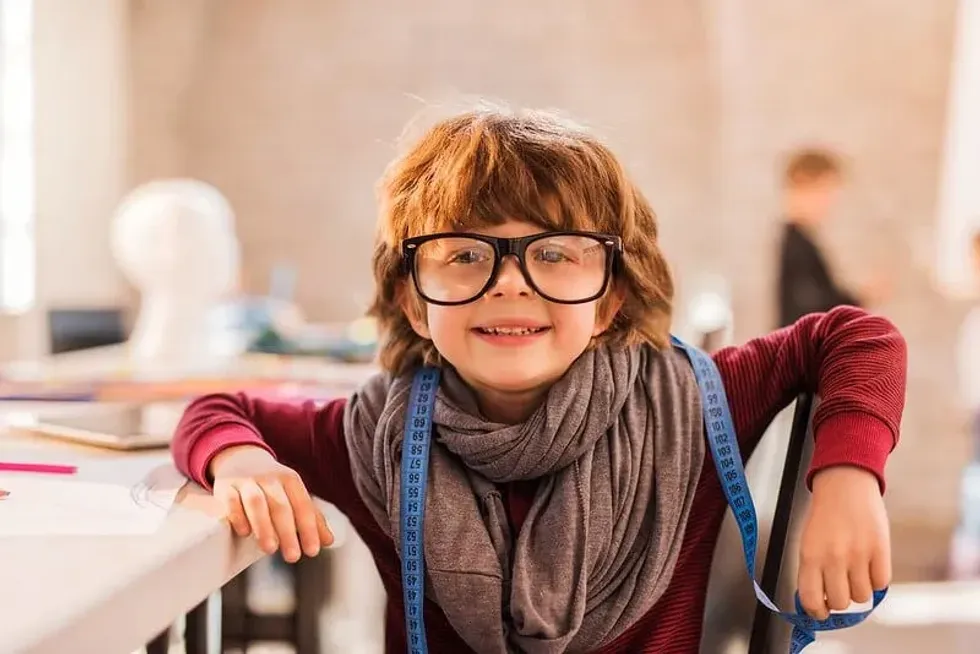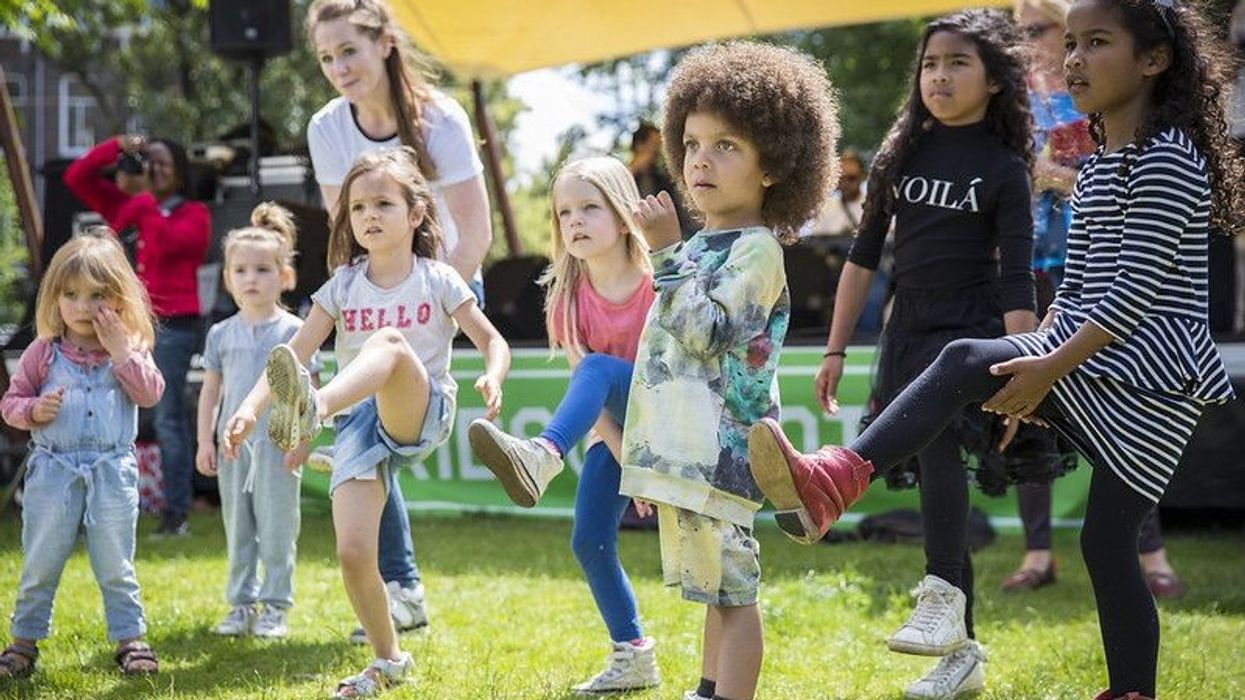Our list of fun measurement activities for kids offers helpful inspiration to make learning about measurements more exciting.
We find ourselves measuring things all the time, sometimes without even realising. Measurement skills are therefore great things for kids to include in their learning.
Learning about measuring might not sound fun at first, but we've included fifteen amazing measurement activities for kids below, to make learning about measurement fun. You'll find your kids will naturally absorb this information a lot better with these sorts of fun measurement activities.
Some of these activities you might have already done with your kids, so in some cases, it'll just be the case of throwing in measurement learning.
Play 'Shop'
You can play 'shop' to implement some fun measurement learning.
What you will need:
A ruler
Kitchen scales
Scissors
Pretend money
Lots of treats!
Make a fun little shop on a table filled with lots of treats, such as sweets and healthy snacks, for your kids. Find some pretend money printables online and price up the items on the table.
Give your kids a set amount of printable money to spend it on items on the table, for example, one pound for one centimetre of jelly snake, or two pounds for 100 grams of fruit! This fun measurement activity can be tailored to kids of all ages including younger preschool children too.
Perfect for ages 3 and over!
See How High Your Kids Can Stack Lego Blocks
You can do some great measurement activities for kids with Lego blocks. One idea is to get your kids to stack as many Lego blocks as they can before the tower falls over. Then use a tape measure to measure how tall your tower was.
Keep trying to beat your personal record and find ways to construct your tower to make it even sturdier. This activity is perfect for KS1 and KS2 kids. For younger children, you can count up in blocks instead of centimetres as this is still a great introduction to the concept of measurement.
Perfect for all ages!
Measure The Circumference Of Your Head

What you will need:
Paper
Pens
A soft tape measure
Using the soft tape measure, measure the largest part of your kids' heads. Once you've got a length in centimetres, you can draw this length as a straight line on some paper, to see the length of the circumference of your heads!
Perfect for ages 6 and over.
Introduce Some Sweets!
Sweets make anything more exciting, right? You can add sweets to measurement activities in any way you choose. But one idea is to use a long sweet, such as a strawberry lace or a jelly snake, to measure the perimeters of things, such as the circumference of an apple. This measurement learning activity is great for KS2 kids!
What you will need:
A string like sweet - such as a strawberry lace, jelly snake or a rainbow ribbon sweet.
An apple
A tape measure
Wrap the sweet around the apple and mark with your fingers the length of the sweet. Let go and measure the length of the sweet in centimetres to see how what the circumference of the apple is. The best bit about this learning activity is that you can eat it all afterwards (except the tape measure)!
Perfect for KS2.
Bring Measurement Into Your Exercise
There are lots of ways you can bring you measurement learning into sport. You can see how fast you can run by measuring 50 m in a park or field and then use a timer to measure how long it takes to run this 50 m distance.
If you don't have access to a park or field like this, you can measure the time of other things like how long can you hula-hoop for or how long does it take to complete an obstacle course.
Perfect for KS2.
Measure Your Own Height
This classic and simple activity is a great measurement activity for kids of all ages and can be continued over the years.
What you will need:
Pencil
Tape Measure
Use a wall in the house that you don't mind marking! Get your kids to stand with their backs against the wall and mark their heights with a pencil.
Then use a tape measure to measure the distance from the ground to the point, and write down the date, height, age and name. You can do this with all members of the family and, through time, you can watch your little one's heights grow!
Perfect for all ages!
Make Your Own Height Chart

You could also make your own height chart with your kids!
What you will need:
Any arts and crafts supplies, paints, and colours.
2m of paper. This could be from a large roll of sugar paper or lots of smaller pieces of paper stuck together.
Tape measure
Design your own height chart by drawing a measuring line along the two metres of paper. Use a tape measure as a guide to accurately mark on the centimetres. This part of the activity is where your children will practice their measurement learning.
Then decorate your height chart however you like! Use stickers, printouts and paints to really make your height chart unique.
Perfect for all ages!
Baking

Baking is a fantastic and simple way to practice measuring. Whether it's counting how many eggs or weighing flour in grams, this fun measurement activity is great for all ages of children.
You can find lots of brilliant baking recipes online for kids here.
Perfect for ages 4 and over!
Play With Play-Doh!
You can add simple measurement activities to fun Play-Doh activities. Once you finish making your Play-Doh creations, you can measure the height and weight. You could try guessing the measurements beforehand to start getting your kids used to the sense of what one centimetre looks like, and what one gram feels like.
This activity is suitable for younger children in KS1. Playing with Play-Doh is a motor activity too!
Use Your Own Hands As Measuring Tools
What you will need:
A ruler
Your hands!
If your child measures the length of his or her hand, then you can start measuring things without the need of a ruler!
Let's say your child's hand is 10 cm long; if your child measures your sofa and it's about 20 hands long, then you know the sofa is around 200 cm long.
Once your child knows the size of their hand, they can measure anything! Of course, your child's hand is likely to not be exactly 10 cm, so this will also be good multiplication math practice. Therefore we recommend this part of the activity for KS2 children.
Measure Your Pets!
A lot of us have some furry friends living with us, and what better way to teach your child about measuring than by getting them involved. It’s simple!
Get your kids to measure your dogs, cats, hamsters and the rest from tail to head to see their length! You may be surprised, especially if your canine has a particularly long tail!
Perfect for all ages!
Measure The Length Of The House!
You can measure the length of the house by walking toe to heal from one end of the house to the other. Once you've worked out how many steps you can multiply by the length of your feet to get the length of your house.
Perfect for ages 5 and over!
Measure The Perimeters Of Your Hands
What you will need:
String
Paper
A pencil
A tape measure
Draw around your hands with a pencil and put the string over the pencil outline. You can then use a tape measure to calculate the length of the string!
Perfect for ages 6 and over!
How Many Feet Are On Your Street
By walking toe to heal on your walks, your kids can work out how long a street is, using their feet as measurement devices. Simple counting is the main task in this activity so is perfect for younger preschool children. For older children, they can convert their steps into meters if they know the length of their feet.
Perfect for ages 5 and above.
Start Introducing Area To Your Kids' Learning

Area measurement learning activities are something that older KS2 children do in school. Measuring area can seem difficult and strange to children at first. One way to make this kind of measurement learning easier is to visualise it. Using lots of one-centimetre square paper cutouts, fill a larger square to calculate how many 1 cm squares fit in.












